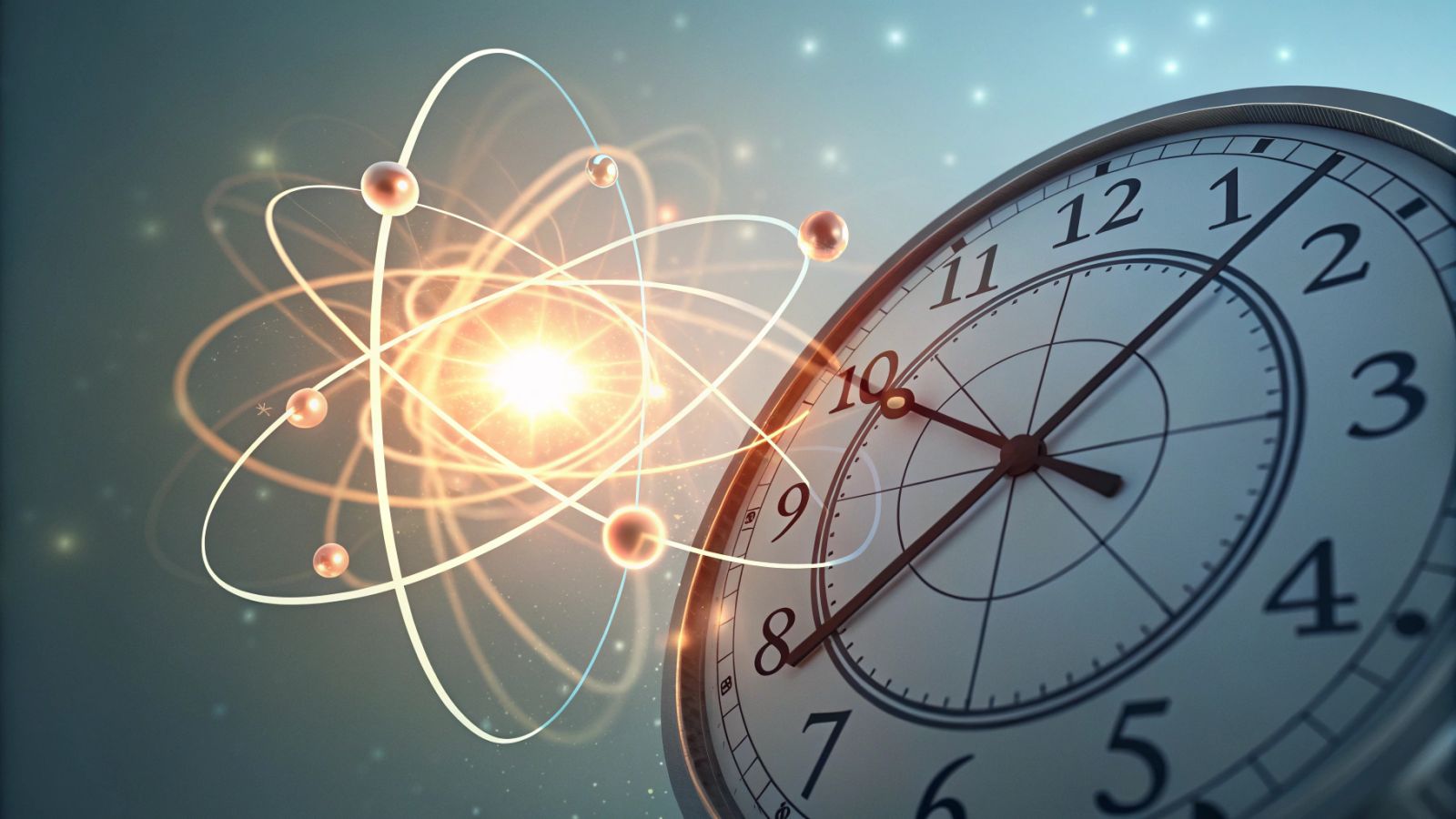🕰️ Quantum: reading the time is much more costly than running the clock
Follow us on Google News (click on ☆)
Quantum clocks represent the ultimate frontier of time measurement, where physical processes occur at infinitesimal scales. Unlike traditional clock mechanisms that rely on macroscopic movements, these devices exploit the delicate behavior of subatomic particles. The Oxford team focused their research on a particular system using single electrons moving between two quantum dots, with each transition constituting a quantum 'second'.

The meticulous experiment required extreme temperature and isolation conditions to observe these quantum phenomena. The researchers employed two distinct detection methods: one measuring minuscule electrical currents, the other using radio waves to capture system variations. These techniques all aimed to transform quantum activity into usable classical information, thus creating a bridge between the two physical worlds.
The quantitative results stunned the scientific community. Detailed thermodynamic analysis shows that the entropy generated by the measurement process exceeds that produced by the clock mechanism itself by a factor of one billion. This colossal disproportion highlights that observation constitutes the most energy-intensive step in the quantum time measurement process, overturning assumptions established for decades.
This discovery opens unexpected perspectives for improving quantum technologies. Rather than seeking to optimize only quantum systems, researchers propose developing more efficient detection methods. The energy spent on measurement could be better exploited to, for example, obtain richer information about the system's behavior, allowing for increased accuracy.
The implications of this work extend beyond the field of quantum horology. They shed new light on the relationship between information and thermodynamics, with the suggestion that the act of observation plays a fundamental role in establishing the arrow of time. This deep connection between measurement and irreversibility could influence various branches of fundamental physics.

Energy comparison between operation and reading of a quantum clock
Credit: Natalia Ares, Vivek Wadhia, Federico Fedele
The researchers now plan to explore the principles governing the energy efficiency of nanometric devices. This understanding could lead to the development of autonomous systems capable of calculating and measuring time with efficiency comparable to that observed in natural processes, paving the way for a new generation of quantum technologies.
The quantum measurement "paradox"
Quantum physics introduces counterintuitive concepts concerning the observation of systems. When a quantum phenomenon is measured, it undergoes a fundamental transition from a superposition state to a defined classical state. This transformation, called wave function collapse, constitutes one of the most mysterious aspects of quantum theory.
The measurement process necessarily involves an interaction between the observed system and the measuring apparatus. This interaction irreversibly modifies the system's state, unlike classical measurements where observation can be considered passive. In the case of quantum clocks, this interaction becomes particularly significant from an energy perspective.
The energy expended during quantum measurement primarily serves to amplify infinitesimal signals to detectable levels. This amplification transforms delicate and fragile quantum information into stable, usable classical data. The energy cost of this conversion largely explains the observed imbalance between operation and reading.